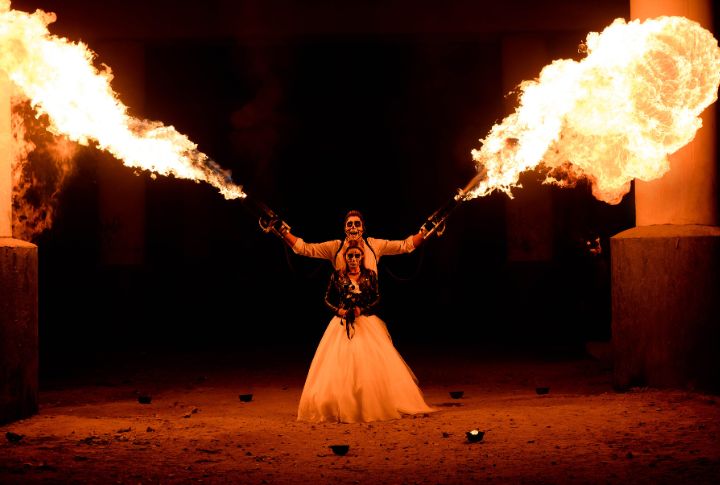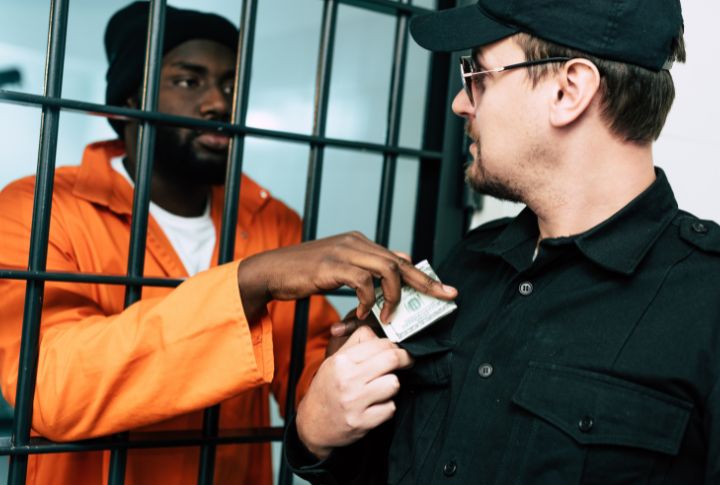
Did you know that there are quite a few legal activities in America that are bizarre? While some may seem strange or outdated, they are still enforced today. It can be a quirky tradition or an unusual regulation; these legal activities will surely surprise you. This article discusses 15 lawful activities that will make you raise an eyebrow.
Legal Ownership of Flamethrowers

In the United States, civilians can legally own and operate flamethrowers in most states. The devices, which can shoot flames up to 50 feet, are regulated only in California and Maryland. This lack of regulation is surprising given their potential danger and the military-grade technology involved. They are not considered weapons under the National Firearms Act.
Drinking at Any Age in Private

While public consumption of alcohol by minors is against the law, in many states, it’s legal for individuals under 21 years old to ingest alcohol in private settings with parental consent. This exception means that underage drinking can legally occur within the confines of a home.
Cannibalism Is Not Explicitly Outlawed

Cannibalism is not explicitly illegal in the U.S., though it’s prosecuted under related laws such as murder, desecration of corpses, and improper disposal of bodies. The legal loophole can be shocking, as it suggests that the legal system does not directly address consuming human flesh. However, the laws make it nearly impossible to obtain a body legally.
Selling Human Hair

Americans can legally buy and sell human hair for various uses if it’s not damaged. The hair trade is largely unregulated, allowing individuals to profit from their own or others’ hair without significant oversight. Given the personal and bodily nature of the commodity, this practice can be quite surprising.
Bounty Hunting

Bounty hunting, where individuals track down fugitives for a monetary reward, remains legal in the U.S. Although the practice is rooted in the Old West, modern bounty hunters still operate with considerable freedom and use methods that can seem more suited to a bygone era of frontier justice.
Paying for Prison Upgrades

In some parts of the U.S., inmates can pay for better accommodations in jail. This system allows wealthier prisoners to avoid the harsher conditions of regular incarceration by essentially buying their way into more comfortable cells. It raises ethical questions about equality in the justice system.
Ticket Scalping

The resale of event tickets for profit is regulated and remains legal in many states. Platforms like StubHub facilitate this secondary market, where prices can soar far above face value. The legality of this practice often leads to significant debate about fair access to entertainment.
Owning a Tank

Civilians in the U.S. can legally own decommissioned military tanks. While the weapons must be disabled, the sheer fact that individuals can buy and drive these massive armored vehicles is astonishing. People collect these tanks as a hobby or to add decorative items to their property. As long as the gun is disabled, there are no legal issues to owning a war tank.
Gambling in Native American Casinos

On Native American reservations, gambling laws are different, allowing activities such as casino gambling that might be restricted elsewhere. These sovereign lands operate under their own regulations, making running large-scale gaming operations legal.
Corporate Personhood

In the U.S., corporations are legally considered individuals in many contexts, a doctrine known as corporate personhood. This status grants them rights typically reserved for humans, such as free speech and the ability to sue or be sued.
Homeschooling with Minimal Oversight

In many states, homeschooling is subject to minimal regulation and gives parents considerable freedom in educating their children. Requirements for curriculum approval, standardized testing, and oversight can be minimal or nonexistent.
Selling Your Organs

Selling organs for transplants is illegal, but it’s not against the law to sell renewable body parts like hair, blood, plasma, and even eggs and sperm in the U.S. Selling these bodily items allows individuals to profit from their own biology. It often raises ethical questions about exploitation and consent.
Open Carry of Firearms

Due to the Open Carry laws, you can visibly carry firearms in public spaces in many states. It’s legal with varying degrees of regulation and can be startling, especially in contexts where firearms are not typically seen. Additionally, you don’t need a permit to carry your gun in public spaces.
Unrestricted Political Donations

The U.S. allows virtually unrestricted political donations through mechanisms like Super PACs. It enables individuals and corporations to contribute vast sums to political campaigns, raising concerns about money’s influence on democracy and the potential for disproportionate sway over elections.
Extreme Ironing

In America, it’s legal to participate in “Extreme Ironing,” a quirky sport where people press clothes in unusual and often dangerous locations, such as on mountain tops, while surfing, or even underwater. This bizarre combination of an everyday chore and adventure sport continues to gain enthusiasts nationwide.

Comments
Loading…